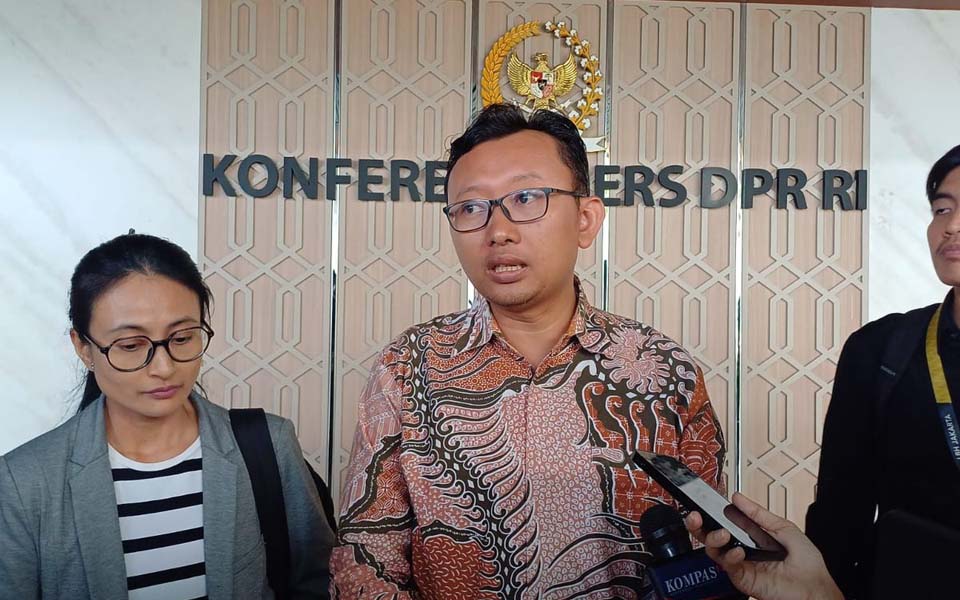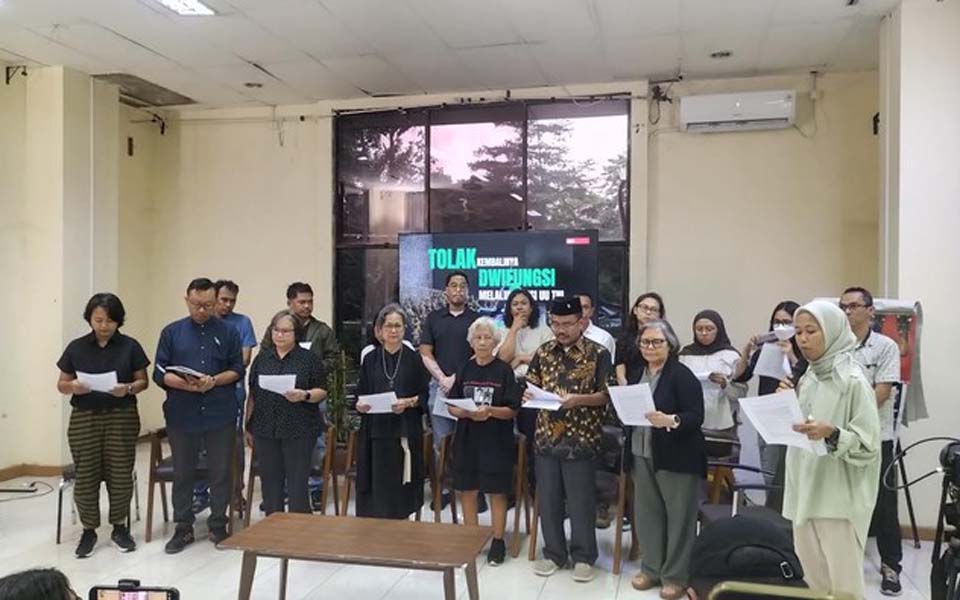Ade Tri – The presidential and legislative elections are over and the noise of the strident sound of the “festival of democracy” is no longer to be heard.
The festival of the political elite competing to accumulate the wealth taken from sacrificing the ordinary people – particularly the working class – has begun to fall silent. What remains is the next episode where the political elite begin dividing up the cake of power.
In the end however, the festival of the elite always gives rise to policies which fail to side with workers. Such as Labour Law Number 13/2003 which was from the start opposed by workers because it did not represent their interests.
The law legitimised contract labour and outsourcing systems and in the end, instead of being promoted to permanent employees, just in order to enter the workforce, employees had to dig as deep as possible into their own pockets.
Over the years guarantees of worker prosperity have become increasingly dim. The birth of Government Regulation Number 78/2015 (PP 78) limited annual wage rises by tying them to economic growth and inflation. The PP 79 also abolished the democratic right of trade unions to negotiate wage increases.
With the problems cause by the PP 78 still unresolved, the government through the Labour Ministry then issued a statement that the 2003 Labour Law is inflexible and needs to be revised. In the final analysis, the revisions of the law are directed towards benefiting employers.
The revisions to the Labour Law, which have already been included in the House of Representatives (DPR) National Legislation Program (prolegnas), reportedly plan to reduce severance pay for sacked workers. Currently employers are obliged to provide severance pay equivalent to nine months wages. This will be reduced to only five months.
The revision will also allow more lenience for foreign workers to work in Indonesia. Instead of siding with workers these revision will bring even more suffering to Indonesian workers.
And even before rumors about revisions to the Labour Law subsided, a declaration on apprenticeships was made by several senor trade union leaders. The regulations on apprenticeship, which are stipulated under the Labour Law, are aimed at increasing competence and education for new workers and preparing them for entry into the workforce.
But in practice however, there are many irregularities committed by employers which turn apprentices into apprentice works who receive low wages (pocket money) below the minimum wage. These irregularities are never acted on by the government and instead it seems the government closes its eyes to the practice.
Will we allow these revisions to go ahead? The working classes’ passion of resistance needs to be re-inflated. This situation cannot be allowed to continue.
[Ade Tri is a leading member of the Solidarity Alliance for Labour Struggle (GSPB). Translated by James Balowski. The original title of the article was “Revisi UU Ketenagakerjaan Menguntungkan Pemodal”.]
Source: https://buruh.co/revisi-uu-ketenagakerjaan-menguntungkan-pemodal/















